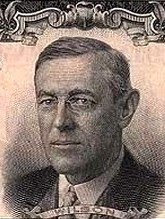
When the uptick rule was invented 70 years ago, stocks were quoted in fractions of a dollar.
The smallest "tick" then was typically $1/8, plus another $1/8 in commission. For almost a decade now, US stocks have been quoted in decimal dollars and cents.
The minimum uptick now is $.01, and they happen more frequently because of their smaller size and larger volume. Whatever effect the rule had then, good or bad, it has but nostalgic value today.
This observation is lost on Charles R. Schwab, who has joined the campaign to reintroduce the uptick rule in his
WSJ op-ed:
In the wake of the Great Depression, the uptick rule was established to eliminate manipulation and boost investor confidence. The rule said that short sales could be made only after the price of a stock had moved up (an "uptick") over the prior sale. This slowed the short selling process making it more expensive and limiting the ability of short sellers to manipulate stocks lower by piling on, driving the share price quickly down and quickly profiting from the downdraft they created.
I expect that many of Mr. Schwab's customers find comfort in blaming manipulators for their poor performance in recent markets, and what businessman argues with his customers? But I say, why stop at half-measures? We could
prohibit short-selling the way it's prohibited in China. Or better yet--we could
prohibit selling altogether. Quoting Barton Biggs in
Wealth, War & Wisdom:
[C]oncerned about the ebbing of confidence, the Nazi government imposed controls on stock prices for the remainder of World War II which concealed the damage. No German legally could sell shares without first offering them to Reichsbank, which had the option of buying them at December 1941 prices in exchange for government bonds, which remained in the bank's possession. Not exactly an attractive proposition, particularly since bond prices collapsed.


